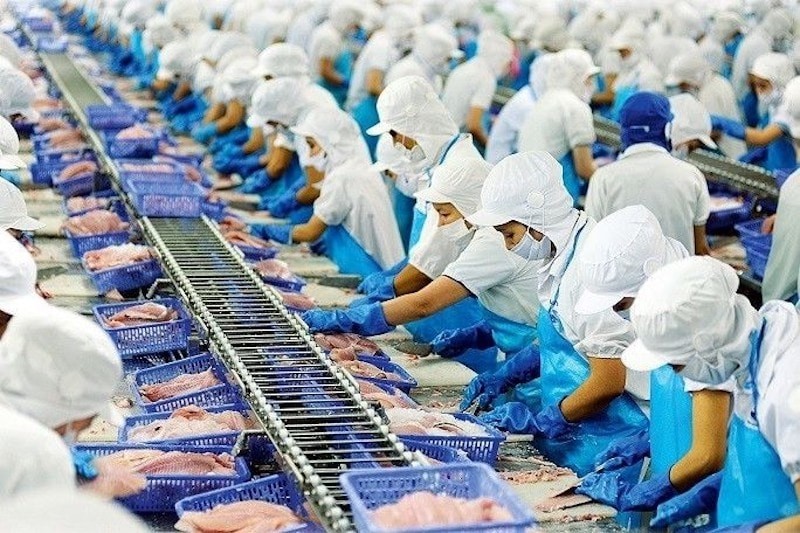
The Vietnam Association of Seafood Exporters and Producers (VASEP) has sent an official document to Deputy Minister of Justice Nguyen Thanh Tu, highlighting numerous shortcomings in the current legal framework. These issues, VASEP asserts, are placing significant burdens on seafood enterprises and hindering business operations. The problems are grouped into three main categories: conflicting and overlapping regulations; rules that impose high compliance costs and stifle innovation; and vague, unreasonable, or impractical provisions.
Among the regulatory inconsistencies raised is the application of value-added tax (VAT) on by-products and scrap materials from seafood processing. VASEP pointed out that while local tax authorities have guided that unprocessed or simply pre-processed seafood by-products are exempt from VAT declaration and payment, they still impose a 10-percent VAT rate on those derived from processed items (e.g., boiled products).
This contradicts Circular 83/2014/TT-BTC, which explicitly classifies shrimp heads, shrimp shells, fish heads, and fish bones as products that are either unprocessed or merely pre-processed—and therefore exempt from VAT at the commercial stage, regardless of whether they originate from processed or semi-processed goods.
The inconsistency in tax regulations, VASEP noted, has forced businesses to allocate additional resources to classify and invoice identical scrap materials from different processing lines. Moreover, clients often reject the application of two different tax rates on the same type of product, creating further commercial challenges.
To resolve this, VASEP has proposed that the Ministry of Finance issue unified guidelines stating that all seafood by-products and waste—whether from pre-processed or processed goods—should be exempt from VAT declaration and payment at the commercial stage, provided they have not been turned into other products and have only undergone basic pre-processing.
The association also cited several other rules that create compliance burdens and hinder innovation. Notably, Decree 37/2024/ND-CP on wild-caught seafood sets minimum harvestable sizes for certain species in natural water bodies that do not align with international practices—posing difficulties for both fishermen and exporters. In addition, the decree’s prohibition on mixing imported and domestic seafood raw materials in the same export batch lacks a clear definition and also diverges from global standards.
Of particular concern, companies say, is the regulatory void regarding MRPL in testing for banned antibiotics in seafood. This gap has led to the ironic situation where products eligible for EU export cannot be marketed within Vietnam. Furthermore, the country currently lacks clear provisions and guidance on converting the purpose of imported seafood from export processing to domestic consumption, or vice versa.
























